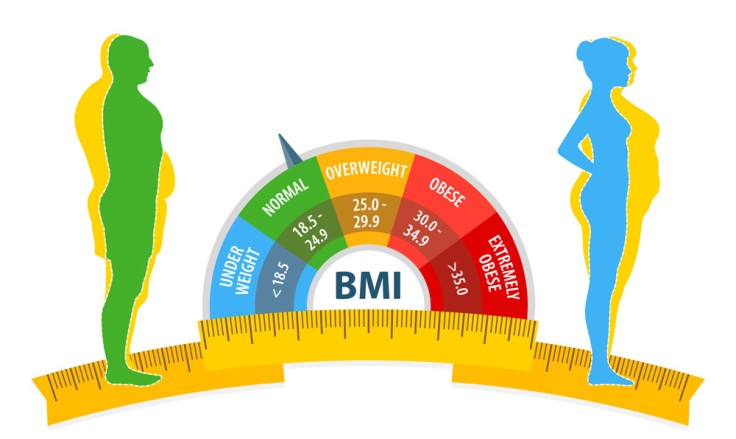What is BMI (Body Mass Index)?
BMI (Body Mass Index) is a numerical value derived from an individual's weight and height. It offers a reliable indicator of body fat for most people. It is also used to screen for weight categories that may lead to health problems.
How Is Calculated?
- BMI measures body fat based on your weight and height.
- It's a simple calculation where your weight is divided by your height squared.
- There are tools and online calculators that can do this for you quickly. Just input your weight and height, and it tells you your Body Mass Index.
- This method works the same whether you use metric or imperial measurements.
What Are The Main BMI Categories?
- Underweight: Less than 18.5
- Normal weight: 18.5–24.9
- Overweight: 25–29.9
- Obesity: 30 or more
How Important Is BMI?
Understanding your Body Mass Index is crucial because it's one of the easiest and fastest tools for assessing potential health risks related to your body weight. Here's why knowing your BMI is important:
- Early Warning Sign: A high BMI can be an early warning sign of potential health problems. It can indicate an increased risk of diseases that are linked to excess weight. These include type 2 diabetes, heart disease, and certain types of cancer.
- Health Monitoring: Regularly checking your BMI can help you monitor your health status over time. It can motivate you to maintain a healthy lifestyle. You can also take action if your BMI falls into a riskier category.
- Preventive Measures: Knowing your Body Mass Index can prompt you to adopt preventive measures. If your BMI indicates you're overweight or obese, you can choose to take direct action. This can include starting a healthy diet, increasing physical activity, or seeking medical advice.
- Tailored Healthcare: Healthcare professionals use BMI as a starting point to tailor medical advice, treatments, and interventions. It helps them recommend lifestyle changes or medical follow-ups based on your Body Mass Index category.
Limitations of BMI
While the index is a useful tool for population studies, it has limitations. It may not accurately reflect body fat percentage in:
- Athletes with high muscle mass
- Elderly with lost muscle
- Pregnant or breastfeeding women
How to Improve Your Body Mass Index?
A balanced diet and regular exercise are key to reaching or maintaining a healthy index. Consultation with healthcare providers is recommended for personalised advice.
For more information and to book a consultation with an ACIBADEM healthcare professional, visit the ACIBADEM Beauty Center website.
Frequently Asked Questions
Yes, but it's interpreted differently. For children and teens, BMI age and gender-specific percentiles are used.
Not always. It doesn't distinguish between excess fat, muscle, or bone mass.
Annually, as part of a health check, or more frequently if undergoing weight management.
BMI ranges may underestimate health risks in some Asian populations, necessitating adjusted cut-off points.















